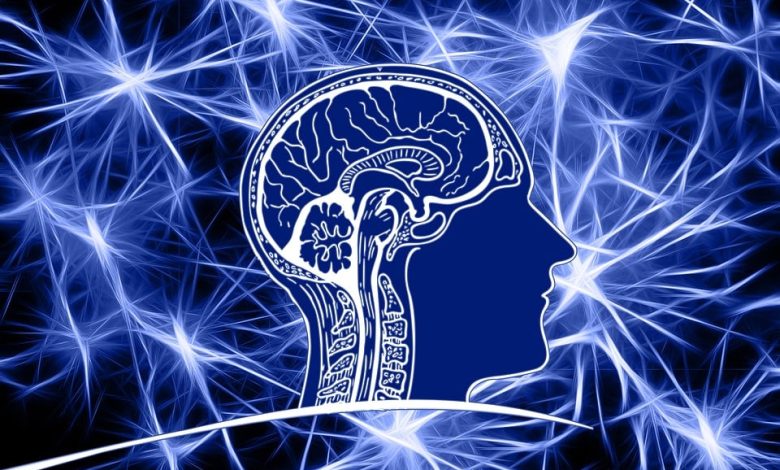Understanding Brain Zaps: What Causes Them and How to Cope

Brain zaps, also known as brain shivers or electrical shocks, represent a fascinating yet perplexing phenomenon reported by individuals undergoing specific treatments or experiencing certain conditions.
While the term may sound alarming, delving into what brain zaps are, their potential causes, symptoms, and available treatment options can unravel the mysteries surrounding this peculiar sensation.
What are Brain Zaps?
Brain zaps manifest as sudden sensations of electrical shock or jolts within the brain. Descriptions from those who experience them often include feelings of being briefly shocked, a buzzing sensation, or even hearing distinct noises like a “zap” or “whoosh.” Although these sensations are generally painless, they can be disconcerting and unsettling, prompting a closer examination of their underlying causes.
The term “brain zaps” was coined to describe the unique and often indescribable sensation that individuals were experiencing, particularly when discontinuing certain medications. While the exact origin of the term is not precisely documented, it likely emerged from the efforts of individuals trying to articulate their experiences during discussions with healthcare professionals, online forums, or support groups.
The terminology “brain zaps” effectively captures the vivid and startling nature of these experiences. It provides a concise and relatable way for individuals to communicate a complex and subjective phenomenon. The term has since become widely recognized and accepted in both medical literature and everyday discussions about medication withdrawal and related neurological sensations.
Causes of Brain Zaps:
1. Withdrawal from Medications: Brain zaps are prominently associated with the discontinuation of specific medications, particularly antidepressants such as Selective Serotonin Reuptake Inhibitors (SSRIs) and Serotonin-Norepinephrine Reuptake Inhibitors (SNRIs). Abruptly stopping or tapering off these medications can lead to changes in neurotransmitter levels, particularly serotonin, potentially causing the brain zaps.
2. Changes in Neurotransmitter Levels: Brain zaps may be intricately linked to alterations in neurotransmitter levels, particularly serotonin. This hypothesis aligns with the understanding that medications influencing serotonin reuptake often play a pivotal role in their occurrence.
3. Withdrawal from Substances: Individuals undergoing withdrawal from substances like benzodiazepines, which exert an impact on the central nervous system, have reported experiencing brain zaps.
4. Medical Conditions: Certain medical conditions, such as vestibular migraines or other neurological disorders, have been associated with the occurrence of brain zaps. Exploring these conditions is essential for a comprehensive understanding.
Symptoms of Brain Zaps
The symptoms of brain zaps include:
1. Sensations: The hallmark symptom of brain zaps is the sensation of electrical shocks or jolts within the brain, which can vary in intensity.
2. Duration: Brain zaps are typically short-lived, lasting only a few seconds. However, the frequency and intensity of these sensations can vary significantly among individuals.
3. Accompanying Symptoms: Some individuals may experience additional symptoms alongside brain zaps, including dizziness, nausea, or a sense of being off-balance. Understanding these associated symptoms is crucial for a comprehensive evaluation.
Are Brain Zaps Dangerous?
Brain zaps are generally considered to be more uncomfortable and startling than dangerous. They are often reported as a side effect of discontinuing certain medications, especially antidepressants such as Selective Serotonin Reuptake Inhibitors (SSRIs) and Serotonin-Norepinephrine Reuptake Inhibitors (SNRIs). However, while brain zaps are not inherently harmful, they can be distressing and disruptive to daily life.
The exact mechanism behind brain zaps is not fully understood, but they are believed to be associated with the causes described above. It’s crucial to note that the intensity and frequency of brain zaps can vary among individuals. Some people may experience them as a mild annoyance, while others find them more disconcerting.
While brain zaps themselves are not considered dangerous, they may be indicative of an underlying issue, such as medication withdrawal or a need for adjustments in medication. Additionally, the psychological impact of experiencing brain zaps, including anxiety or discomfort, should not be overlooked.
If you are experiencing brain zaps or any unusual sensations, it is important to consult with a healthcare professional. They can provide guidance on whether the sensations are related to medication withdrawal, an underlying medical condition, or another factor. It’s essential to communicate openly with your healthcare provider to ensure a proper evaluation and, if necessary, the development of an appropriate treatment plan.
How to Cope With Brain Zaps
Coping with brain zaps can be challenging, but there are several strategies that may help alleviate symptoms and improve your overall well-being. Here are some practical tips to manage brain zaps:
- Gradual Medication Tapering: If brain zaps are associated with medication withdrawal, consider working closely with your healthcare provider to create a gradual tapering plan. Slowly reducing the dosage of the medication instead of stopping abruptly may help minimize withdrawal symptoms, including brain zaps.
- Stay Hydrated and Maintain a Healthy Diet: Dehydration and poor nutrition can sometimes exacerbate symptoms. Ensure you are drinking enough water and consuming a balanced diet rich in vitamins and minerals. This can positively impact your overall health and may contribute to symptom relief.
- Adequate Sleep: Establishing a regular sleep routine can be beneficial in managing brain zaps, especially if they are associated with insomnia or disruptions in sleep patterns. Aim for 7-9 hours of quality sleep each night, and consider creating a calming bedtime routine to promote better sleep.
- Stress Management Techniques: Practice stress-reducing activities such as deep breathing, meditation, yoga, or mindfulness. These techniques can help regulate your nervous system and may contribute to a reduction in the frequency and intensity of brain zaps.
- Regular Exercise: Engaging in regular physical activity can have positive effects on both mental and physical health. Exercise has been shown to boost mood, reduce anxiety, and improve sleep quality. Choose activities you enjoy, whether it’s walking, jogging, yoga, or dancing.
- Talk to a Mental Health Professional: If brain zaps are affecting your mental well-being, consider seeking support from a mental health professional. A therapist or counselor can provide coping strategies, emotional support, and a safe space to discuss your experiences.
- Supplement Consideration (Under Medical Guidance): Certain supplements, such as omega-3 fatty acids and B-vitamins, may have a positive impact on brain function and overall well-being. However, it’s crucial to consult with a healthcare professional before adding any supplements to your routine, especially during medication changes.
- Support Groups: Connecting with others who have experienced or are experiencing brain zaps can be comforting. Online or local support groups provide a platform to share experiences, coping strategies, and emotional support. Knowing that you’re not alone in your journey can be empowering.
- Cognitive-Behavioral Therapy (CBT): Cognitive-behavioral therapy is a therapeutic approach that focuses on changing patterns of thinking and behavior. It can be particularly helpful in managing anxiety and stress associated with brain zaps. Consider consulting with a mental health professional trained in CBT.
- Educate Yourself: Understanding the nature of brain zaps, their triggers, and their transient nature can empower you in coping with them. Stay informed about your medications, their potential side effects, and the withdrawal process to manage expectations and work collaboratively with your healthcare team.
Remember, everyone’s experience with brain zaps is unique, and what works for one person may not work for another. It’s crucial to tailor coping strategies to your specific situation and consult with healthcare professionals for personalized guidance. If symptoms persist or worsen, seek prompt medical attention.
Conclusion
While brain zaps can be unsettling, they are often a temporary and manageable phenomenon. If you find yourself experiencing brain zaps or any concerning symptoms, seeking the guidance of a healthcare professional is crucial. Open communication with your healthcare provider facilitates an accurate diagnosis and the development of an appropriate treatment plan tailored to your specific situation. Promptly addressing any health concerns can contribute to a smoother recovery and improved overall well-being. Remember, you are not alone, and seeking professional help is a proactive step toward understanding and managing brain zaps effectively.





